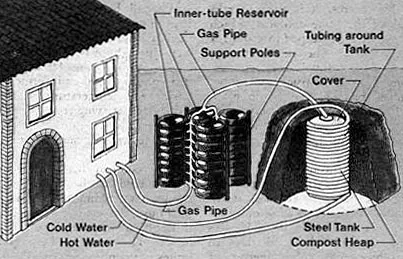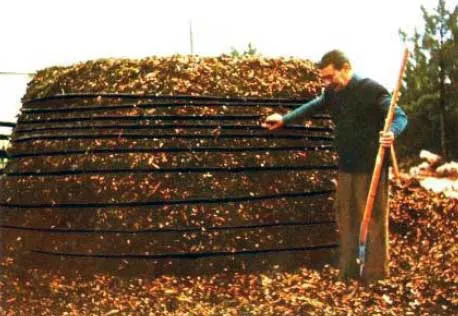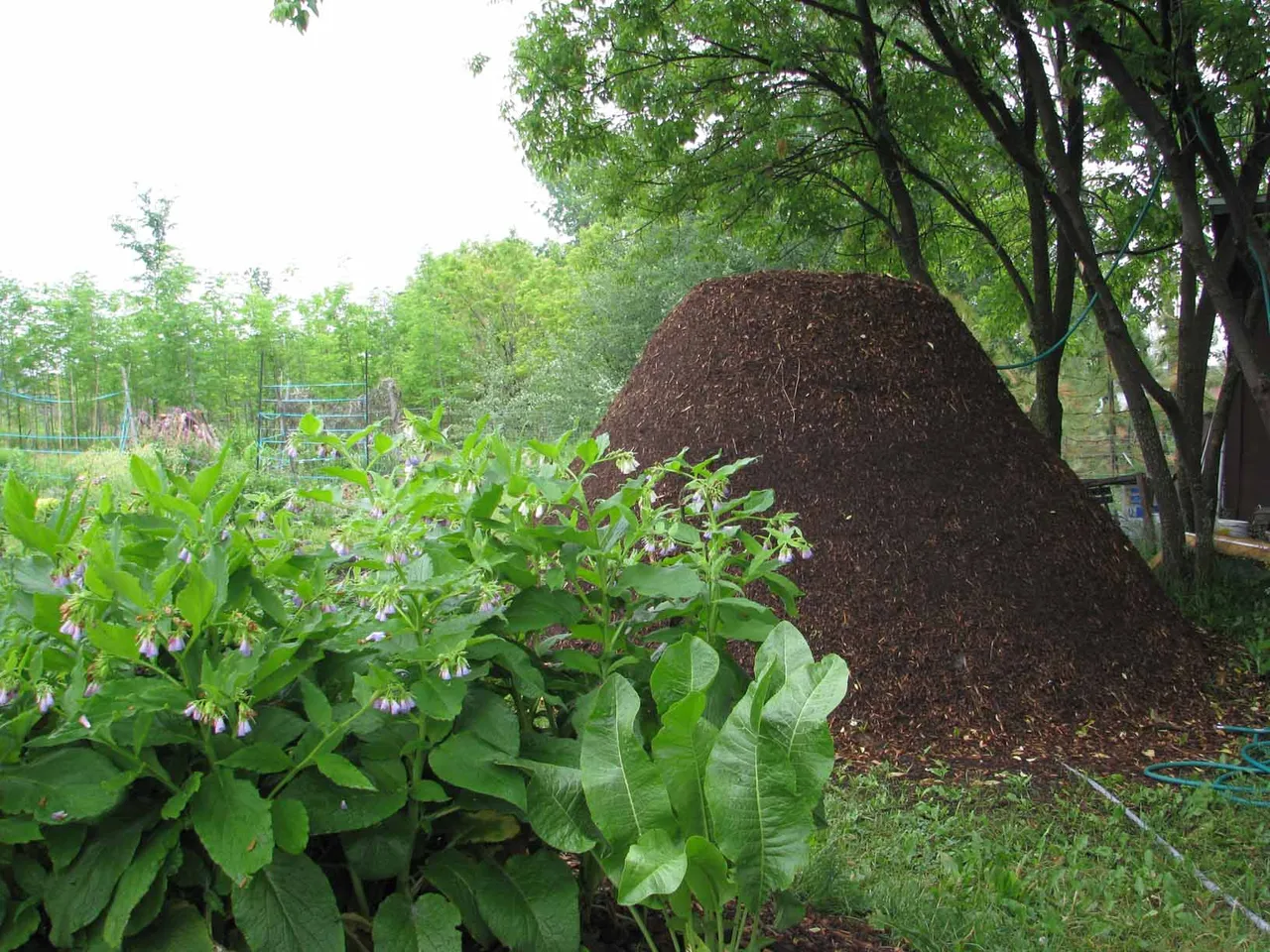


If you've never heard of Jean Pain, but are into the off-grid, prepper, Permaculture lifestyle, you should check him out:
Essentially, the system works by allowing anaerobic bacteria breakdown the wood chips slowly over time. This gives off heat which can be tapped by the long coil of pipe hidden in the pile.

That alone is pretty nice, free hot water you could use for heating your house or just for you regular plumbing, probably saves a lot of energy, no?
Ben Falk, a Permaculturist in Vermont, USA made his own version, you can see him enjoying it in the dead of winter, outside, it's THAT hot!
But what makes Jean Pain's system unique is that it also makes biogas by heating a cylinder full of partially digested wood chips (3 months in water). Once heated, they give off a lot of gas that gets collected and later compressed for using either in the kitchen for cooking, in the generator for power or in his retrofitted vehicle for driving around.
There are other good Biogas systems, but there is just something special about the genius of this system.
Here's a decent Biogas System you could more easily make, but you don't get the free thermal energy :(
On top of all that, once you are done, you get, not a few wheelbarrows of compost but literally TONNES of nicely broken down woody mater that is so absorbent, it practically eliminates the need for watering, or at least allows you to go a lot longer before you NEED to water. The whole humic layer just becomes a sponge an no doubt a great environment for creating fungally dominant soils.
WAYS I WOULD IMPROVE ON IT:
- Minerals: adding Glacial rock dust or some Azomite would greatly help with the finished product and my intuition tells me that all that microbiology going on for so many months would help break down the minerals further to make them more bioavailable
-experiment with additives: I'm guessing Jean Pain and many others already have, but I'm guessing sources of Nitrogen like urine or manure could be added if you wanted a hotter faster decomposition, but that might also have it's disadvantages too. You could also add some Fungi cultures, perhaps later at the end of the process to help transition from one type of breakdown to the next. Like the other addition of Nitrogen though, it might make for better compost later, but less heat and gas if your fungi eat all your bacteria, thus stopping the exothermic party. Biochar also might be useful in moderation. Effective Microorganisms? (EM)
-use today's existing technology to optimize the energy you get out of it. There are Proton Exchange Membranes (PEM) that are used in Fuel cells that have been developed to turn methane directly into electricity, water and CO2 without combustion. Pause on that. There are also thermoelectic technologies that could be used to directly convert heat into electricity. Peltier, Stirling engines etc Or Monotherm
Many other possibilites I'm sure, what are your thoughts?
Power to the People!



